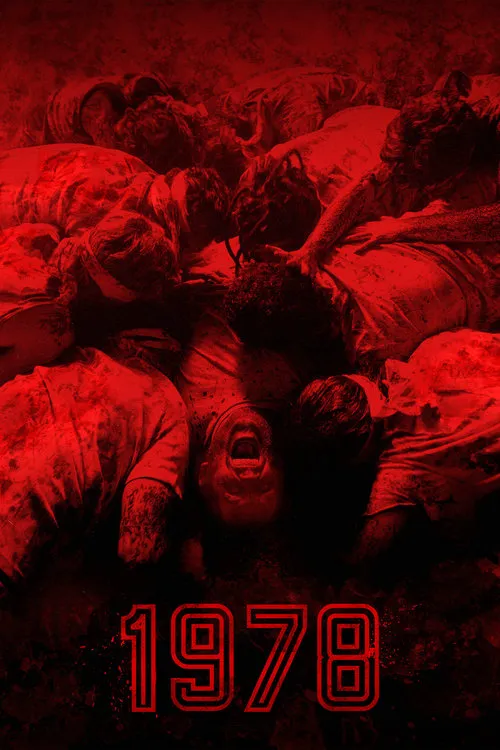1978

Plot
'78, directed by Hilda Hidalgo and Cesc Gay, is a 2007 film set against the backdrop of Argentina's brutal military dictatorship. The movie intertwines the 1978 World Cup final between Argentina and the Netherlands, where Argentina secured a 3-1 victory, with a gripping narrative of a group of young people mistakenly kidnapped by government torturers. The plot revolves around an interrogation session at an underground, clandestine facility, where the young victims, all friends, are subjected to inhumane torture. The captors, representing the oppressive forces of the military regime, assume that the group consists of members of a left-wing resistance movement. However, the reality is starkly different: they are merely young friends who have been in the wrong place at the wrong time. As the torture proceeds, the captors' assumptions are continuously shattered. The group does not conform to the image of the typical resistance fighters they had envisioned. Their backgrounds, motivations, and values are revealed to be nothing like the stereotypes the military regime had created. As each session unfolds, the young captives resist the psychological and physical trauma inflicted upon them. They cling to their human dignity and refuse to yield, fuelled by an unwavering determination to survive. The film masterfully crafts a stark contrast between the high-stakes drama of the World Cup final and the inhumane treatment of the captives. The scenes of torture are presented with unflinching intensity, juxtaposed with moments of raw humanity that serve as a poignant commentary on the dehumanizing effects of oppression. The World Cup final is portrayed not just as an event that unfolds on the big screen, but also as a nationalistic fervour that fuels the very forces that perpetuate human rights abuses. The tension builds as the young captives hold onto the hopes of their country's triumph on the international stage, unaware of the horrors being carried out on behalf of that pride. The directorial duo's choice of title, '78, is a fitting reference to both the World Cup final and the year's oppressive climate. It serves as a reminder that in a year where Argentina rose to international prominence on the football pitch, the very foundations of Argentine society were crumbling beneath the weight of the military regime. Through the narratives of its characters, '78 raises essential questions about the complexities of power, oppression, and identity. In doing so, it underscores the significance of human connection and solidarity in the face of insurmountable adversity. The friendships forged among the group, the resistance they demonstrate against their oppressors, and the resilience they exhibit as a unit, ultimately serve as a powerful testament to the enduring power of the human spirit. '78 is a haunting and poignant reflection on the dehumanizing effects of oppression, the power of resistance, and the importance of preserving individual dignity. By juxtaposing the exhilaration of a national triumph with the horrors of state-sponsored torture, the film delivers a scathing critique of the brutal military regime that once ruled Argentina. As a tribute to the strength and resilience of the human experience, '78 continues to resonate with audiences, serving as a timely reminder of the devastating consequences of oppression and the enduring importance of empathy and solidarity.
Reviews
Recommendations




